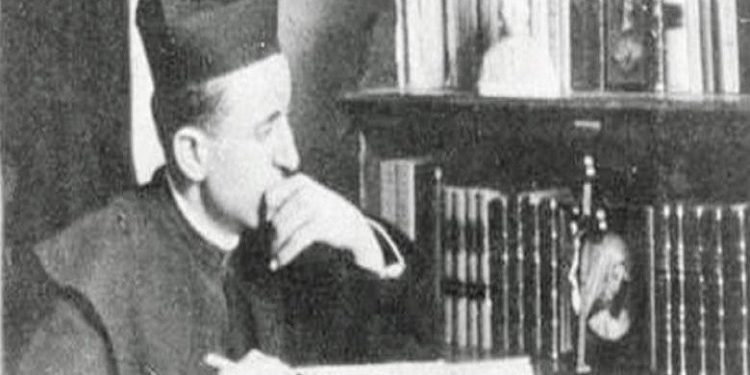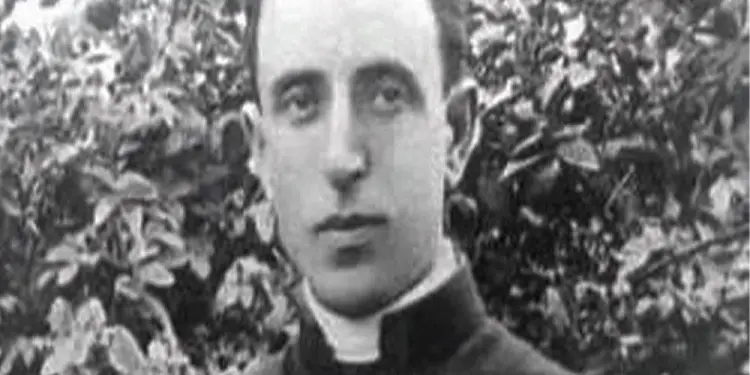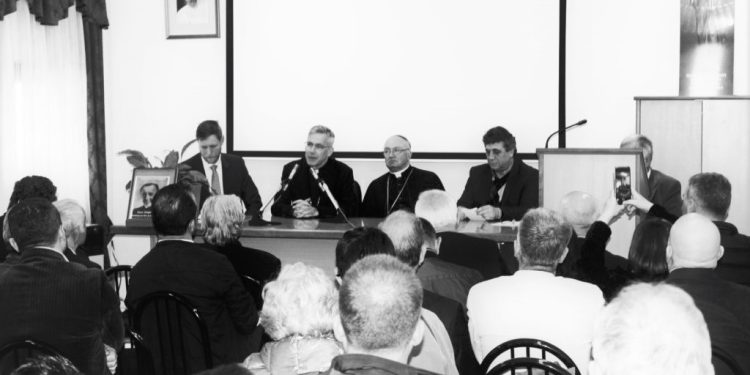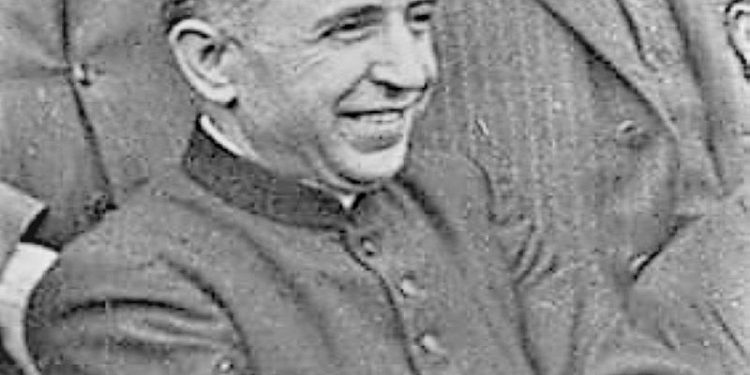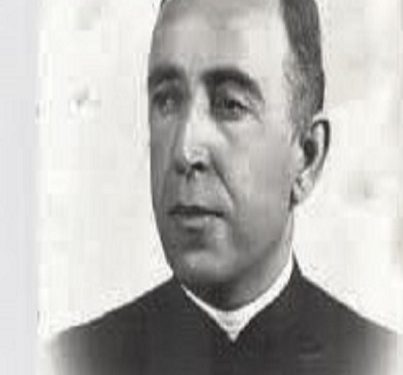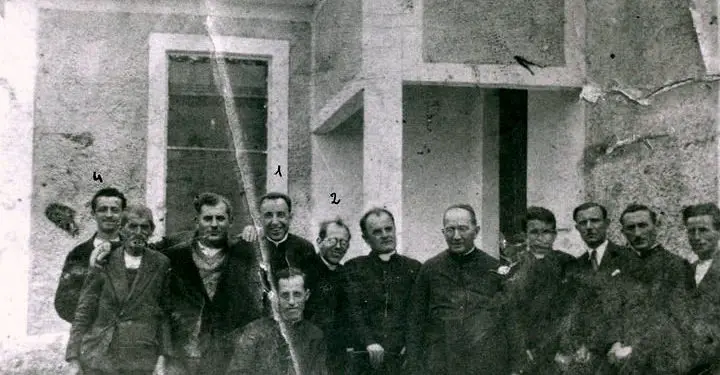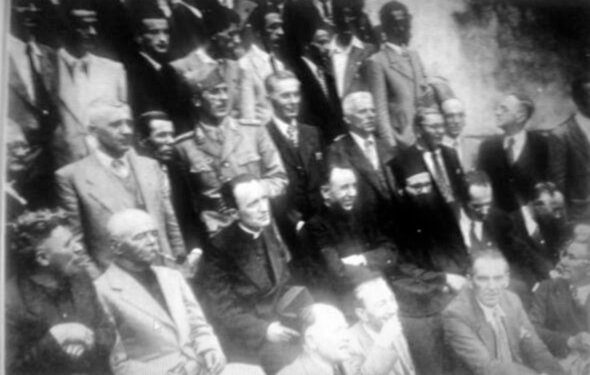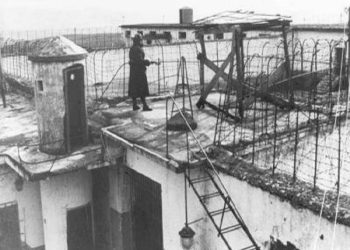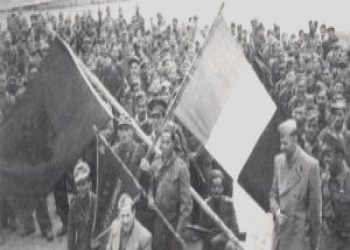NIKOLLË LOKA
Av. ALFDRED DUKA
NIKOLIN KURTI
Part thirty-nine
– THE FORECAST MURDER OF A CLERGYMAN OF THE RENAISSANCE –
Memorie.al/ Before we begin to briefly analyze the investigative and judicial file in charge of the defendant Shtjefën Kurti and others, for the reader we will make a parenthesis of the right and its history in human society, with the focused goal of coming to our criminal and procedural law, from its beginnings and throughout the years of the dictatorship.
Continues from last issue
The decision of the Supreme Court and the statements of former prosecutors and judges who sentenced Dom Shtjefën Kurti to death
Minutes on the execution of Shtjefën Jak Kurti
In Tirana, on September 29, 1971
I, the investigator of the Ministry of Internal Affairs, Vangjel Kote, having with me the deputy prosecutor of the Krujë district, friend Piro Suli, the deputy head of the Krujë Department of Internal Affairs, Ramiz Lalmi, Dr. Asim Yllin, in support of the order of the Minister of Internal Affairs, No. 3285/1, dated 25.9.1971, I pulled Shtjefa Jak Kurti from Ward 313, sentenced to death (by firing squad), and took him to the place designated for execution.
There, the deputy district prosecutor Piro Suli communicated to the convict in question that the Presidium of the People’s Assembly has refused to pardon him and that the Court’s decision would be executed, so he should have the last word.
Secretary Jak Kurti said: I did not push people to sabotage, I admitted my guilt to the investigator and the court. Halal be my blood, long live the Government, long live Albania, long live the Catholic Church!
After the last word, the execution was carried out by shooting and after it was ascertained by the doctor Asim Ylli that he was dead, he acted according to the relevant authorization, giving the result to Dr. Asim Yllit.
The minutes were edited in four copies.
The minutes, after being read and checked that they are written correctly, are signed.
Investigator Deputy District Prosecutor
Vangjel Kote Piro Suli
Dr. Asim Ylli
The Deputy Head of the Internal Affairs Branch
Ramiz Lami
The name of Dom Shtjefën Kurti was found registered in the “Register of the dead of Department 313, with serial number 102: Shtjefën Jak Kurti, 11.6.70, death 29.9.71, was shot. The place of burial is kept secret, because it is marked with a hyphen in the corresponding column. This is considered his second murder, as even today the place where his remains rest has not been found.
The Criminal College of the Supreme Court sends the file to the Presidium of the People’s Assembly even when no request is made by the convict. This happened to some convicts of this year, like I. T. In that year, there were also convicts who had applied for a life pardon. The Presidium of the People’s Assembly made a decision in both cases. In case of upholding the decision of the Supreme Court, the Presidium addressed the Ministry of Internal Affairs, the General Prosecutor’s Office and for the information of the Supreme Court, with the note “the decisions of the courts shall be implemented!”
In the case of Dom Shtjefën Kurti, although he had not prayed for the pardon of his life, the Supreme Court, with letter No. 305, dated 18.9.1971, sends the case in question to the Presidium of the People’s Assembly.
For competence, attached, we send you a copy of the decision No. 806, dated 8.9.1971, of the Judicial Council of the Criminal College of the Supreme Court, which leaves in force the decision No. 54, dated 30.7.1971, of the Court of Kruja District, which among other things has sentenced Shtjefa Kurti to be shot. We add together with the decision and a relation is sent to you, while the mentioned prayer has not been submitted.
With letter No. Prot. 800/1, the Presidium of the People’s Assembly Addresses the Ministry of Internal Affairs and the General Prosecutor’s Office.
We inform you that in the meeting of 23.9.1971, the Presidium of the People’s Assembly considered, among other things, the issue of the death penalty (by firing squad), according to decision No. 54, dated 30.7.1971 of the Kruja District Court, for Shtjefa Jak Kurtin and decided to refuse his life pardon.
Krujë District Prosecutor’s Office, on 20.10.1971, with letter No. prot. 215, addressed to the Presidium of the People’s Assembly, where he sent the minutes kept on the occasion of the execution of the decision of the People’s Court Krujë, regarding the death sentence, Shtjefën Kurti. District Prosecutor, Hajdar Veseli.
No information about the fate of Don Shtjefën Kurti!
Law on executions
Decree, no. 3584, dated 12.11.1962. On the execution of Criminal decisions,
In support of Article 58, point 6, of the Constitution of the People’s Republic of Albania;
With the proposal of the Government, the Presidium of the People’s Assembly issued this decree:
Decree on the execution of criminal decisions
Chapter I
General provisions
Article 1
The court, upon receiving the final criminal decision, sends it to the bodies charged with its execution for execution. These bodies, when the execution begins, must notify the Court that issued the decision.
Article 2
The bodies charged with the execution of decisions keep evidence of their execution
Article 3
Control over the execution of decisions is exercised by the Prosecutor.
Chapter II
The manner of execution of criminal decisions.
- a) Death penalty.
Article 4
The decision containing the death penalty is executed by the Internal Affairs Bodies by shooting the convicted person, except when the Court’s decision stipulates execution by hanging on a rope.
Article 5
In the event that a request for pardon is presented, according to the rules specified in Article 349 of the Code of Criminal Procedure, the execution of the decision is suspended, until the end of the examination of this request.
Article 6
In the execution of the death sentence, the civil or military prosecutor, the doctor and a secretary participate as the case may be. For the execution, a record is kept that is signed by the superior persons. A copy of the record is sent to the court that issued the final decision to join it with the acts. The court must notify, no later than 24 hours after receiving the copy of the record mentioned above, the civil status clerk, to make the deregistration in the death register.
Article 7
The body of the executed person is buried by the Internal Affairs bodies, at the expense of the state.
There is a document that certifies the use of Don Shtjefni’s body as a corpse for students’ teaching practices. According to a recently discovered record, the list of names of those executed in mass grave 31 exists. There it is written that the lifeless body of Dom Shtjefën Kurti was used as a corpse in the morgue. The transfer of the cleric’s body for use was made by order of the Minister of Internal Affairs, who had given such orders in similar cases that are documented.
In these conditions, finding the remains of Dom Shtjefën Kurti is difficult and the efforts of the family over thirty years have not yielded results. It should be noted that today some of the participants in the execution of Shtjefën Kurti live inside or outside the country, but neither they nor the state has committed to finding the place where the remains are located, so that Lumi Dom Shtjefën Kurti has a grave , like everyone else. This paradoxical situation is a serious accusation against the Albanian democracy, that it has not made the necessary efforts to find the disappeared, which shows that the Albanian state has not yet really parted with the past.
Testimony of Çeçile Kurti, about the life of Dom Shtjefën Kurti
I, Çeçile Ilezaj, am married in the Kurti family to Tadeo Kurti, son of Gjon Kurti, who had an older brother Shtjefën Kurti. I married Tadeo on July 7, 1946 in Tirana and we were crowned by Dom Shtjefën Kurti, who was a parish priest in Tirana, where there were many priests, such as Dom Mark Dushi and Father Filip Mazreku.
My husband’s family was a very good Catholic family of Kosovar origin, from Ferizaj. I know the life of Dom Shtjefni very well. He was a skillful, devout priest, knew many languages and was highly cultured. He studied in Austria. Dom Shtejfën Kurti was a priest engaged in pastoral life. He preached extremely beautifully. He was also devout in giving the holy sacraments. He was very fond of the youth and developed many youth activities in Tirana, where he founded the youth cinema. The youth loved him very much and they were all with him.
He went to prison on October 27, 1946. He was sentenced to 25 years in prison. They tortured him for days and asked him to separate the Catholic Church in Albania from the Vatican. He had connections with the Vatican and sent information there. He spent 6 years, 6 months and 6 days in prison in Burrel. When he was released from prison, he came to us, where he stayed for 2 months. Then, they sent him as a priest to Gurëz. He went there, where there was a church that he had built himself and he had brother Kel Kurti.
When the churches were closed, they forced him to work the cooperative’s land. A family called him for the baptism of a child. He did not deny that he was a priest of Christ. They had arrested him and when they shot him, he had said “Long live Christ the King!”
I think and I am convinced that he was a martyr. He himself told me that when he served before the new church was built, he was tired and water poured on his head. I have seen his legs with wounds with my own eyes and I have put salt on those wounds. I am convinced that Dom Shtjefën Kurti was a martyr and had holy features. This opinion is shared by all Catholic believers in Durrës and Tirana.
Luigj Vata’s testimony about Dom Shtjefën Kurti
Gurez, on March 24, 2003
I was born on August 1, 1941 in Gurëz. I come from a Catholic family that has been living in Gurëz for over 100 years. I knew Dom Shtjefë Kurti well, he was my worker in the cooperative warehouse during communism, from 1964 to 1968. I remember him with a tall body and a little hunchback, at that time about 70 years old and wearing glasses. I was a warehouseman of the Gurëz agricultural cooperative and Dom Shtjefni was a warehouse worker. He performed various jobs: sewed sacks, selected potatoes and tomatoes, filled crates.
I have known Dom Shtjefni. He didn’t talk much, but he seemed to be a man of high character, very fond of people, a good preacher and loved by all the people. He lived in the house of God. After he got out of prison, he lived most of the time in a small hut. One day I invited him for lunch and during the conversation I asked him: Will the churches be opened? Yes, he answered me: Of course, but when all the communists die (Old Guard). You understand, even the communists of the village respected him, that he has been our vicar for a long time. In one case we were alone. I asked her:
– If the communist leaders had fallen into your hands, would you have killed them?
– No, I wouldn’t have killed them!
– Why doesn’t God kill them?
– Slow down because God is not a cat with scratches.
Dom Shtjefni was imprisoned for the second time. They falsely accused him of telling the villagers: Steal the cooperative, that this is your property. He baptized children and taught people to baptize their own children.
The day Dom Shtejfni was arrested, I was also arrested, on June 11, 1970. I was accused of political collaboration with Dom Shtejf Kurti. They tortured me and confronted me in the interrogator with him. In front of two investigators and in the presence of Dom Stephen, I was asked to tell the truth. We will shoot Dom Stejf Kurti, – they said on one occasion. During the investigation, Dom Shtjefni did not say a single bad word about us. He said that “the two brothers, Luigji and Nushi, are good boys and have been good”. I was sentenced to 8 years and 3 years for bad work in the economy. Dom Shtjefën Kurti was sentenced to death on July 27, 1971.
He was shot only because he was a priest, because that’s what the Communist Party wanted. I and the people value Dom Shtjefa Kurti as a martyr and as a saint.
Testimony of Fran Ndoc about the life of Dom Shtjefën Kurti
Gurez, on March 18, 2003
I was born on July 9, 1943 in Gurëz and I am a farmer by profession. Comes from an old Catholic family. I was sentenced to 14 years in prison, the same day as Dom Shtjefën Kurti, on June 11, 1970. Dom Shtjefën Kurti was sentenced because the communist ideology was to destroy religion, but it cannot disappear without the priests disappearing. For this reason, Dom Shtjefën Kurti was arrested. My father, Ndou, was a great friend of Dom Shtjefën Kurti and I, as Ndou’s son, was imprisoned as a collaborator with Dom Shtjefën Kurti. I was judged in the church of Gurëzi, which Dom Shtjefni had built himself.
At that time, it became a cultural center. The President of the Court asked him: “Did it occur to you that in this church that you built, the new generation will be educated and you will be punished?” Dom Shtjefni replied: “I expect anything from you, but it is important to me that this new generation will not forget the Catholic religion.” The President of the Court was Qazim Mani from Tropoja.
He was sentenced to be shot in July 1971. The President of the Court asked him: Do you regret beingsentenced to death? He said: “We are condemned to death by God, that we will all die – you can cut us some day”.
He accepted death with dignity and said: “I will not die, as long as it is the religion I believe in.” He was shot on October 25, 1971. He was in Tirana prison, tied hand and foot together. I have seen it with my eyes.
Dom Shtjefni is one of the most respected religious people, not only by me, but by all the people. It deserves to be declared a Saint. Memorie.al
The next issue follows




